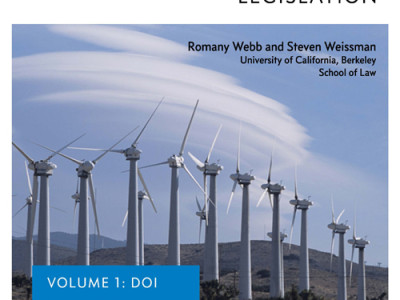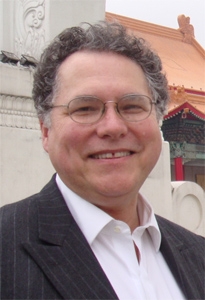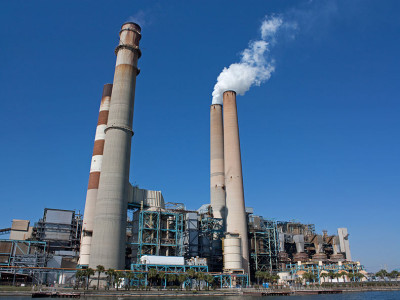General
And Now For Something Completely Different: Chemical Facility Safety?
For the past few days we have all been focused—justifiably—on the EPA’s proposed carbon rule for power plants. But that’s not all EPA and the rest of the federal government have been up to recently. Today a federal interagency working group established under Executive Order 13650, Improving Chemical Facility Safety and Security (“EO 13650”) issued …
Continue reading “And Now For Something Completely Different: Chemical Facility Safety?”
CONTINUE READINGJudicial “Smoke Signals” and the 111(d) Rule
In an earlier post, I suggested that EPA’s decision about how broadly to write the final version of the 111(d) rule might be affected by the Supreme Court’s decision in the pending UARG case. I made the suggestion without much explanation, and it apparently didn’t come across very clearly. So I thought it would be worth …
Continue reading “Judicial “Smoke Signals” and the 111(d) Rule”
CONTINUE READINGAddressing Climate Change Without Legislation
A new report from UC Berkeley looks at the underused powers of the US Department of the Interior.
Now that the Environmental Protection Agency has announced its proposed rules for restricting greenhouse gas emissions from existing power plants, the climate focus of EPA and the states will first be on polishing the rules for final approval, then on the anticipated law suits, and then on the development of state plans to meet the …
Continue reading “Addressing Climate Change Without Legislation”
CONTINUE READINGObama’s Section 111d Plan Has Support From George H.W. Bush’s EPA General Counsel, Utility Executives
E. Donald Elliott calls EPA’s approach
When President Obama’s Environmental Protection Agency releases its Clean Air Act Section 111(d) regulations to control greenhouse gases emitted by the electricity sector on Monday, we can expect howls of protest from the usual suspects: Congressional Republicans, industry groups representing big coal interests, even some coal-state Democrats. But the Obama approach is already receiving praise …
CONTINUE READINGGuest Blogger Joel Eisen: D.C. Circuit Vacates FERC Smart Grid “Demand Response” Rule
Joel B. Eisen is Professor of Law and Austin Owen Research Fellow at University of Richmond School of Law. His scholarly work is available here. Last Friday (May 23), in Electric Power Supply Association v. FERC, a D.C. Circuit panel split 2-1 and vacated Order 745, a Federal Energy Regulatory Commission (FERC) rule designed to …
CONTINUE READINGObama’s Clean Air Act 111d Rules Are Legally Required, Not an End Run Around Congress
Massachusetts v. EPA triggered the President’s Action
On Monday, President Obama is expected to release proposed regulations to cut carbon emissions from existing power plants. Leaks to date suggest that the rules, which will cover 40 percent of total U.S. greenhouse gas emissions, will be ambitious and far-reaching, requiring cuts of approximately 20 percent from the electricity sector. We can already anticipate …
CONTINUE READINGGuest Blogger Kate Konschnik: EPA’s 111(d) Authority – Follow Homer and Avoid the Sirens
Kate Konschnik is the Director of Harvard Law School’s Environmental Policy Initiative. The views expressed in this blog post are her own. Thirty years ago, Chevron v. NRDC set the standard for judicial deference to an agency’s statutory interpretation. In that case, the Supreme Court upheld EPA’s interpretation of Clean Air Act language. This month, …
CONTINUE READINGChina’s Pollution Challenge
Can a new law save China’s environment?
Benjamin van Rooij and I published the following in the New York Times op-ed page today. In short, it is about the challenges the new Environmental Protection Law will face in practice and the critical reforms needed to overcome these challenges: China’s national legislature has adopted sweeping changes to the country’s Environmental Protection Law, revisions …
Continue reading “China’s Pollution Challenge”
CONTINUE READINGOf Corn and Climate
Trouble may be brewing in the corn belt.
We continue to gain a better understanding of the impacts of climate change, which are sometimes subtle and unexpected. Two articles in Science report significant new research. The first report comes from two researchers at the University of Illinois. Corn, like other plants, needs to pull CO2 from the air for photosynthesis. But the same tiny …
Continue reading “Of Corn and Climate”
CONTINUE READINGRaisins D’Etre?
Further proof that takings law is a mess, from a case involving government support for raisin growers.
Horne v. USDA might well have been a law professor’s hypothetical. In order to smooth out raisin prices, the federal government has a program of taking “surplus” raisins off the market and diverting them to “non-competitive markets” like foreign countries and school lunch programs. The effect is to keep up market prices for raisins. The …
Continue reading “Raisins D’Etre?”
CONTINUE READING









